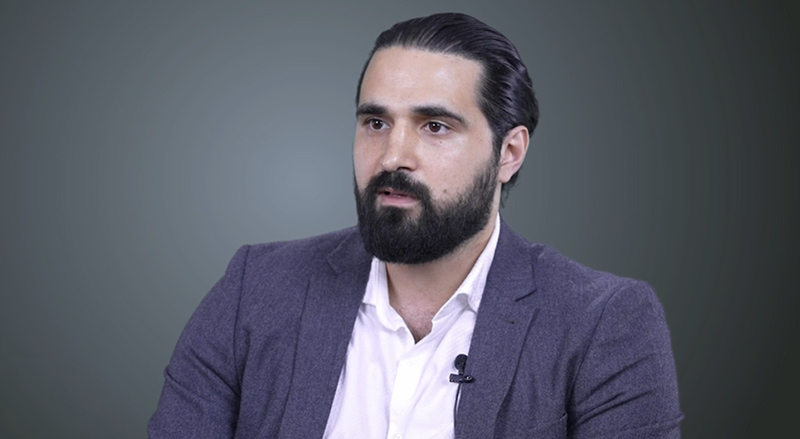Governments and enterprises are increasingly looking to introduce blockchain into their offerings, but are often stuck when it comes to the best ways of incorporating technology. Elas aims to remedy this by making the world’s most scalable technology accessible to businesses of all sizes.
The goal is to leverage blockchain technology to take away all the complexity and allow businesses to run faster, smoother and more efficiently, said Mohammad Jaber Co-Founder of Elas.
Elas is a company which offers blockchain-as-a-service solutions and bespoke solutions to businesses so that they may leverage the true powers of the BSV blockchain. ‘We provide a fully managed service at Elas. So from platform development to developing bespoke platforms, and leveraging blockchain technology for existing platforms with our blockchain data APIs,’ Jaber said.
‘Our methods allow businesses to create their own private ledger on a blockchain, which is a compartmentalised zone that is ring-fenced from all other activity so that platform operators are the only ones that can see all of that information. And that is happening on the ledger and providing permissioned hierarchies to others.’
Bitcoin as a commodity
Jaber explained that Elas has always offered businesses the ability to operate their platform on the public ledger with the full privacy of having their own private ledger. However, it is now introducing a new service as it sees Bitcoin as a commodity.
‘Like all commodities, not all Bitcoin is equal. So like with gold there are different purity levels. The same with oil there are different grades, and with wool, there are different levels of fineness. We believe the same applies to Bitcoin,’ he said.
In addition to creating private levels for businesses, Elas also connects directly with miners and they have also built a mechanism to tag blocks and allow them to form private ledgers.
Know where your Bitcoins come from
Jaber noted that several businesses are using this model, including the fact that they can have complete peace of mind about the provenance of where these bitcoins are sourced.
‘They are brand new coins, freshly minted with no history on them so they can have a completely clean and fresh start to their ledger without any worry about any other activity that has occurred in between. ‘We truly believe that bitcoins are a commodity. And this is demonstrated in the way that we’re thinking about providing this service to business owners,’ he said.
He added that this is possible because of Elas’ ongoing relationship with miners in the space, who can tag blocks with company information and other information which shows their provenance. This includes their energy usage, jurisdiction and other important information, he said.
‘We see this as the future. We see this as where the industry’s going. And we are leaders in the space to be proactive, to be able to be the first to offer this service in what we believe is the cleanest and most impeccable way to use bitcoins to run your business,’ he said.
Editor’s note with additional commentary from Darren Kellenschwiler
Darren Kellenschwiler (Utilisation Technical Lead at BSV Blockchain) fundamentally disagrees with Jaber’s point that one bitcoin token is different from another. ‘So long as you receive it from a known source where you have reasonable expectation that it is the legitimate property of the entity sending it to you then it is considered indistinguishable from other bitcoin tokens. Just like paper cash,’ he said.
Kellenschwiler added that miners are not the ones ‘creating’ the bitcoins. ‘They are paid in bitcoins to do the work set out in the Unilateral Contract. The bitcoins were issued at Genesis and are merely distributed via the block subsidy.’
However, Kellenschwiler does believe that getting coins direcctly from miners is much ‘cleaner’ than getting them from an exchange since there are very limited routes to getting BSV around the world. ‘Since payments from exchanges usually come in the form of address-based payments, there are actually very poor KYC and AML controls on (these transactions),’ he said.
